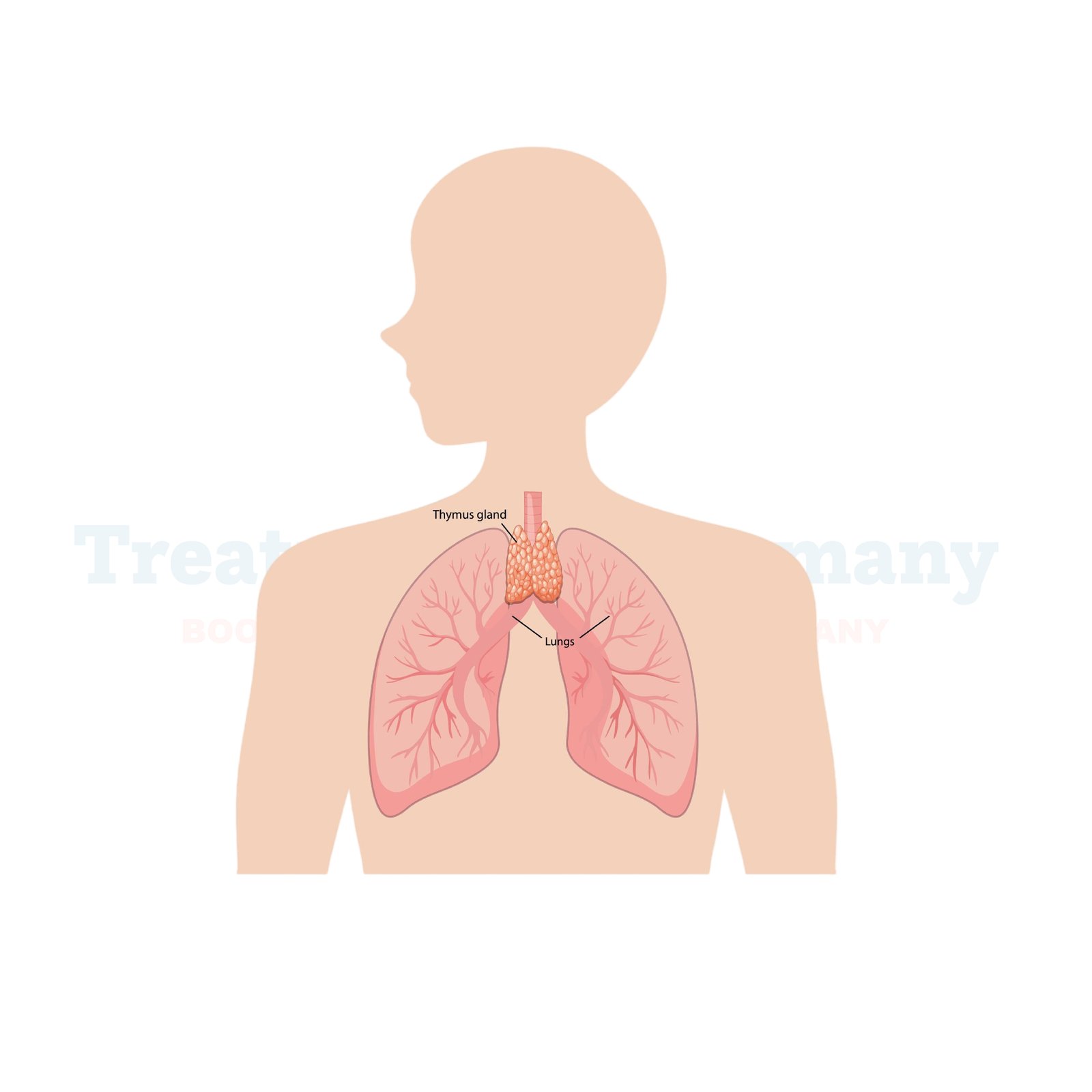Oropharyngeal cancer is the classification of head and neck cancer that develops in the middle part of the pharynx. This part includes the most important structures, namely the bottom part of the tongue, tonsils, soft palate, and the walls of the throat.
Due to proper medical research and technology, oropharyngeal cancer treatment is developed successfully by Germany. It is preferred for patients from around the globe because of its multidisciplinary approach, innovative therapies, and the most advanced facilities.
Oropharyngeal cancer develops in the pharynx. The pharynx is a single, hollow tube that joins the esophagus, larynx, mouth, and nasal cavity. It develops due to the uncontrolled growth of abnormal cells in the oropharynx, resulting in tumor formation.
The two most common agents are:
This is often called tonsil cancer if it begins in the tonsils. It affects the functional and aesthetic capabilities of the oropharynx, including the aspects concerning swallowing, speech, and breathing.
Symptoms of Oropharyngeal Cancer
Many of the symptoms of oropharyngeal cancer are nonspecific and present with other less serious diseases, which might contribute to delayed diagnosis. These include:
Blood or white patches in the mouth that may be coughed up
Risk Factors for Oropharyngeal Cancer
The main risk factor is HPV infection, especially in younger people. Other risk factors are:
Awareness of these risk factors and symptoms can help in the early identification and treatment of the disease.
Diagnostic Methods in Germany
Germany's superior healthcare facility is well equipped with all advanced diagnostic tools that early and accurately diagnose oropharyngeal cancer and its stage. These include:
Biopsy and Pathology
The process of removing a tiny sample of tissue from the area being diagnosed is called a biopsy. The pathologist looks at the tissues under the microscope to confirm the presence of cancer cells and to check whether there is an association with HPV.
Imaging Techniques
Cancer Staging Systems
Staging systems are used for classifying oropharyngeal cancer. This categorizes the tumor according to its size, lymph node involvement, and distant metastases. To ensure correct treatment, proper staging is critical.
Treatment Options in Germany
Germany treatment options have been highly improved in a sophisticated manner and tailored according to the patient's situation. The main objectives are to remove the cancer with full preservation of one's ability to eat, speak, and breathe as they normally do.
Surgical treatments
Surgery is the mainstay for localized oropharyngeal carcinoma treatment. Among these, the most remarkable techniques are transoral robotic surgery (TORS). This minimally invasive procedure allows the surgeon to access the tumor by the mouth hence, no big incisions are required. The main benefits are:
Hospital stays that are very short.
Faster recovery.
Critical functions like swallowing and speaking are preserved.
Chances of complications like hemorrhage or tracheostomy are at a minimum. TORS has completely changed the surgical approach to difficult-to-reach tumors, most especially tonsil and tongue tumors.
Radiation Therapy
Germany make use of advanced radiation techniques available here, such as intensity-modulated radiation therapy (IMRT). It emits well-localized beams of radiation that target the tumor and do minimum damage to the skin, lungs, and voice box. Radiation therapy is often taken with surgery or chemotherapy for better results.
Chemotherapy
Chemotherapy is the use of drugs to destroy cancer cells or slow their growth. It is most useful in:
A combination therapy that includes radiation is generally used for aggressive cancers or those inoperable.
Targeted Cancer Therapies
Targeted therapies deliver monoclonal antibodies that inhibit specific proteins that are used by cancer cells to develop. These drugs prove to be very effective and induce fewer side effects compared with conventional chemotherapy.
Immunotherapy
Immunotherapy is one of the newer therapies, through which the patient's immune response is enhanced to fight against the disease. Pembrolizumab and nivolumab have been very effective in recurrent or metastatic stages. Immunotherapy is promising, but it can develop several side effects, including:
Managing Side Effects
Proper management of side effects is a vital part of cancer care. Treatment Centers in Germany offer:
Prevention and Early Detection
Oropharyngeal cancer risk may be considerably decreased by several variables, including:
Why Follow-Up Care is Important
Regular visits to a doctor, including a dentist, are one way to catch early changes in the pharynx or mouth that may need prompt attention.
Why choose Germany for the Treatment of Oropharyngeal Cancer?
German healthcare equipment and facilities are leading with innovation. A few reasons why include:
Frequently Asked Questions
What is the role of HPV in oropharyngeal cancer?
HPV, specifically type 16, is a cause of oropharyngeal cancers. Vaccination is a good prevention.
What are the benefits of transoral robotic surgery?
TORS appears to be a minimally invasive technique, which results in faster recovery with a fewer number of complications and preservation of critical functions like speech and swallowing functions.
How effective is immunotherapy in managing oropharyngeal cancer?
Immunotherapy has been well used in recurrent or metastatic cancers, as this enhances immune responses directed toward cancer cells.
Is it possible to treat oropharyngeal cancer?
Although treatable, it is also based on early and appropriate treatment. Patients who have positive HPV also seem to fare better in prognosis.
Why is Germany considered the best place for treatment?
Germany provides highly developed diagnostics as well as advanced cutting-edge therapies, along with holistic care by highly experienced doctors and physicians
.
👉 Contact us for further information and receive a complimentary consultation.


.webp)
 (1).webp)

.webp)
 (1).webp)


.webp)
 (1).webp)

.webp)
 (1).webp)
